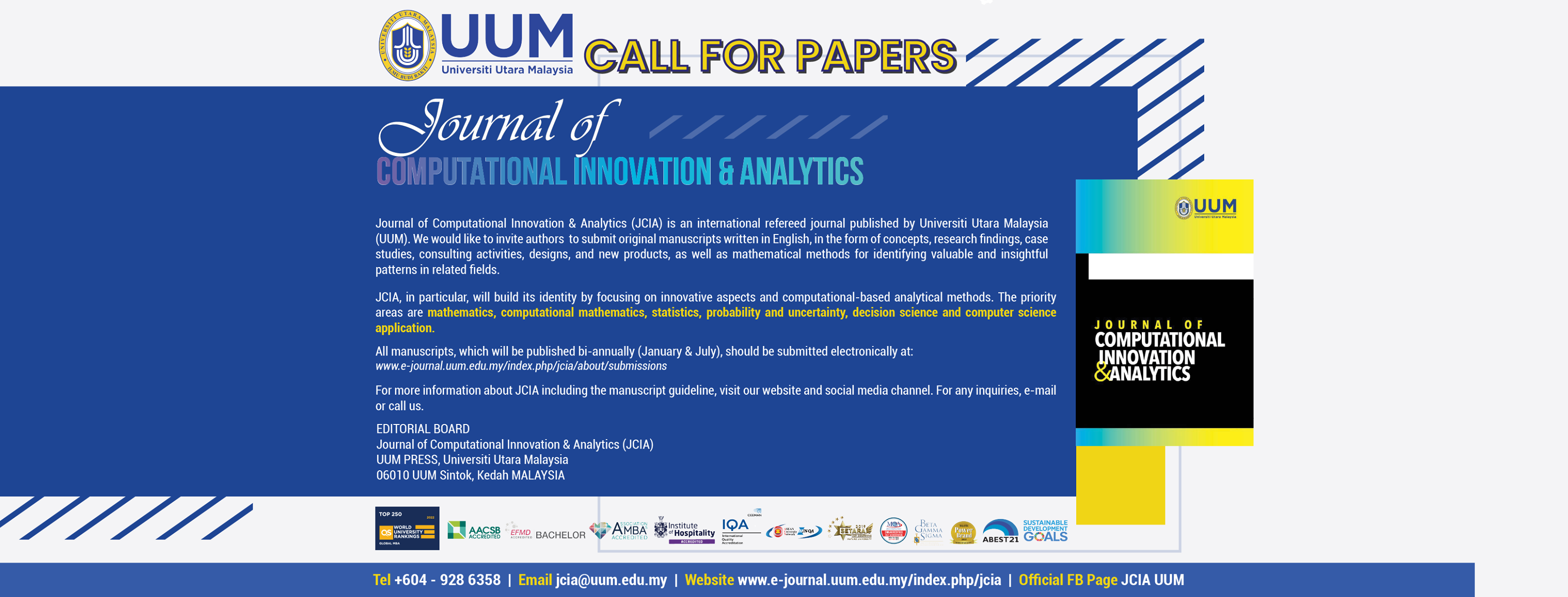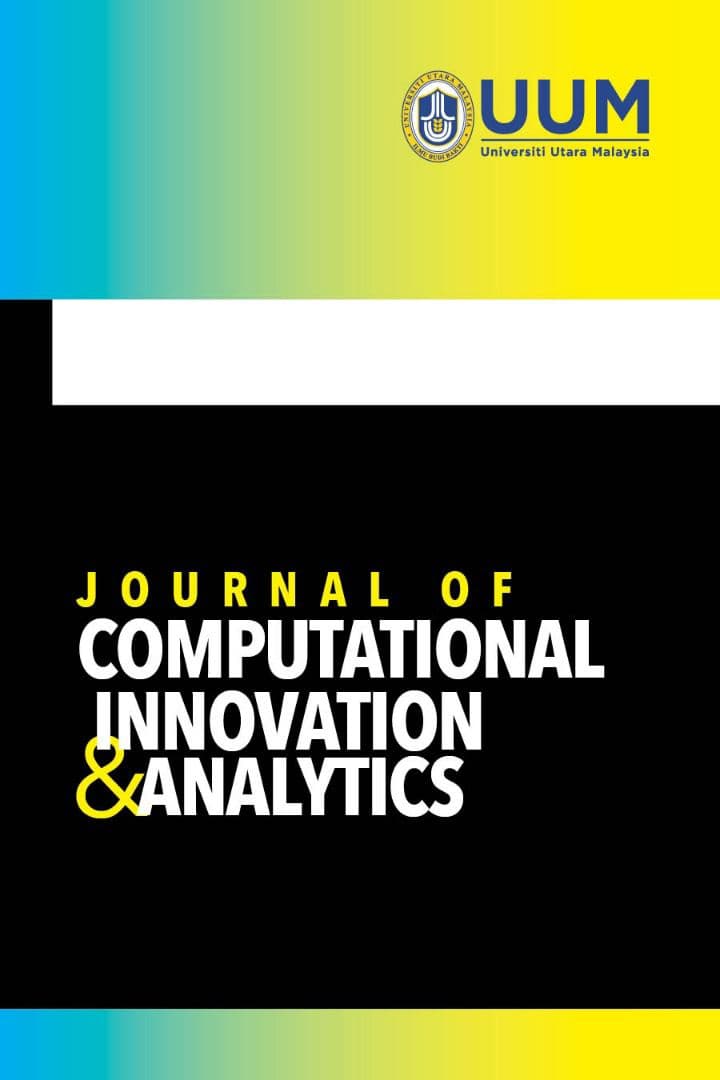JOURNAL OF COMPUTATIONAL INNOVATION & ANALYTICS (JCIA)

The Journal of Computational Innovation and Analytics (JCIA) is an international peer-reviewed journal and officially managed by the School of Quantitative Sciences (SQS).
The journal publishes original research on all aspects of applied and pure computational models, especially targeting papers demonstrating the use of computational techniques and methods originating from computational intelligence theory.
This is an open-access journal with no article processing charge (APC), that is all articles are immediately and permanently free to read, download, copy & distribute. The journal is published under the CC BY-NC 4.0 user license which defines the permitted 3rd-party reuse of its articles. JCIA aims to publish original papers every 6 months (January and July) in the form of concepts, research results, as well as case studies, related to ideas, consulting activities, designs, and new products, as well as quantitative methods for identifying useful patterns in the applications of mathematics, computational mathematics and statistics.
JCIA, in particular, will build its identity by focusing on innovative aspects and computational-based analytical methods. The priority areas are computational mathematics, statistics, probability and uncertainty, and computer science applications that will be published from time to time. In line with the educational transformation of the digital world millennium and new norms, JCIA intends to play a more significant role in statistical theory and mathematics and the application of the field.
Calls for papers for the issues which are currently open for submission. For inquiries regarding special issue proposals, please contact the Editor-in-Chief: jcia@uum.edu.my
Click HERE for manuscript submission.
The Journal of Computational Innovation and Analytics (JCIA) publishes original research on all aspects of pure and applied computational mathematics, especially targeting papers demonstrating the use of techniques and methods originating from computational intelligence theory. The core theories of mathematics, computational mathematics, statistics, probability and uncertainty, decision science and computer science application.
Computational models are mathematical models used to numerically study the behaviour of complex systems by means of a computer simulation. A computational model can be used to make predictions of the system's behaviour under different conditions, often for cases in which intuitive analytical solutions are not available.
The journal publishes only articles related to the use of computational intelligence and broadly covers the following topics:
Submission of a manuscript implies: that the work described has not been published before; that it is not under consideration for publication anywhere else; that its publication has been approved by all co-authors, if any, as well as by the responsible authorities – tacitly or explicitly – at the institute where the work has been carried out. The publisher will not be held legally responsible should there be any claims for compensation.
Please download the manuscript format by clicking below:


